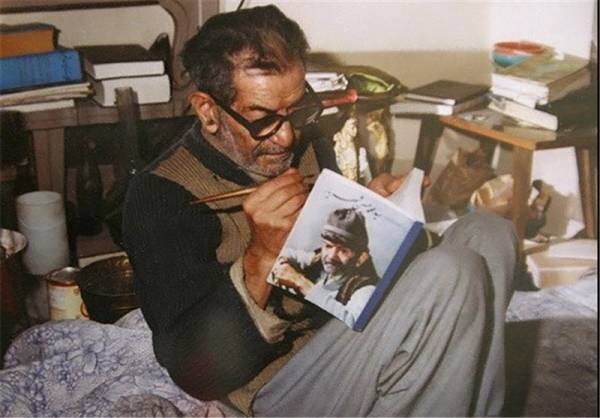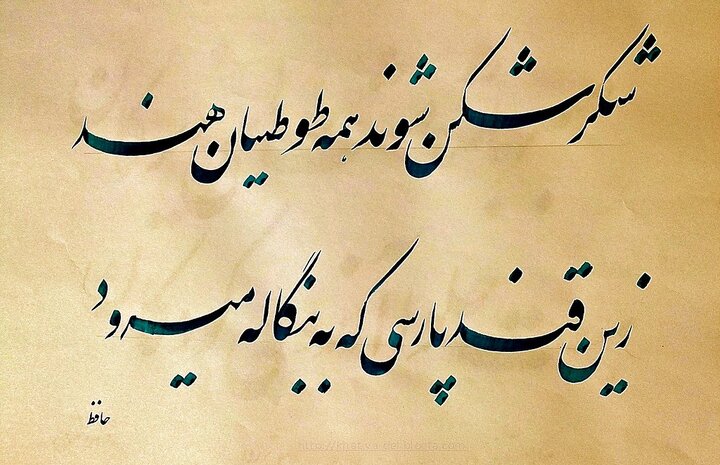Iran (IMNA) - Mohammad-Hossein Behjat Tabrizi, known by his pen name Shahriar, was a prominent figure in contemporary Persian poetry. His death anniversary is an occasion to remember his contributions to Persian literature.
Shahriar was born in 1906, in Tabriz, and passed away on September 18, 1988, in Tehran, Iran. He began writing poetry at a young age and soon gained recognition for his lyrical and powerful verses. His poems often explored themes of love, nature, and social justice, resonating with readers from different generations.
Shahriar's poetry continues to be celebrated and cherished by Iranians, and he remains an influential figure in Persian literature.

Persian poetry and literature have played a pivotal role in shaping Iran's cultural identity and have left an indelible mark on the world of literature. From the enchanting verses of Rumi and Hafez to the philosophical works of Ferdowsi and Saadi, Persian poetry has captivated audiences with its beauty, depth, and universality.
Iran's National Day of Persian Poetry and Literature is a time for Iranians to come together and pay homage to their literary giants. It serves as a reminder of the profound impact Persian poetry has had on society, transcending borders and language barriers. The celebration often includes readings of classical and contemporary Persian poems, recitals, theatrical performances, and book fairs, creating an atmosphere of appreciation for the written word.
This day not only celebrates the Persian language but also fosters a sense of national pride and unity among Iranians. It reminds them of the power of literature to inspire, educate, and preserve cultural heritage. It is a testament to the enduring legacy of Persian poets who have explored themes of love, spirituality, and human emotions, leaving behind a treasure trove of wisdom and artistry.
On Iran's National Day of Persian Poetry and Literature, Iranians reflect on the profound influence of their literary tradition and renew their commitment to preserving and promoting Persian literature both within Iran and around the world. It is a time to honor the past, cherish the present, and inspire future generations to continue the rich legacy of Persian poetry and literature.



Your Comment